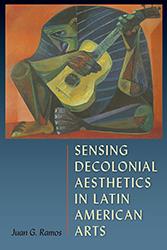Drawing on material evidence from daily life in a coal-mining town, this book offers an up-close view of the political economy of the United States over the course of the twentieth century. This community’s story illustrates the great ironies of this era, showing how modernist progress and plenty were inseparable from the destructive cycles of capitalism.
Search Results for 'Florida on Horseback'
1927 results for 'Florida on Horseback'
Please note that while you may order forthcoming books at any time, they will not be available for shipment until shortly before publication date
After the American Revolution, enslaved and free blacks who had been loyal to the British cause arrived in the Bahamas, drawn by British promises of liberty and land. Freedom and Resistance shows how Black Loyalists struggled to find freedom, clashing with white loyalists who tried either to bind them to illegal indentured contracts or to enslave them.
This book highlights early-career Indigenous scholars conducting research in North America who are advancing the growing paradigm of archaeological study done with, by, and for members of Native-descendant communities.
Ritual and archaic states frequently ignite complex debates about their defining characteristics and archaeological signatures. Offering fresh perspectives on both subjects, this volume unites the two streams of scholarship and explores the varying nature, expression, and significance of ritual in archaic states.
This book brings alive the richly diverse world of an underwater paradise, the second largest coral structure on the planet: the Mesoamerican Barrier Reef.
Juan Ramos uses “decolonial aesthetics,” a theory that frees the idea of art from Eurocentric forms of expression and philosophies of the beautiful, to examine the long decade of the 1960s in Latin America—a time of cultural production that has not been studied extensively from a decolonial perspective.
This book traces the journey of influential dancer, teacher, and choreographer Naomi Goldberg Haas, from her early years as an emerging dancer to her leading work in bringing the joy of movement to dancers of all ages and abilities.
Bringing far-removed time periods into startling conversation, this book argues that certain attitudes and practices present in Europe’s Middle Ages were foundational in the development of the western concept of race.
This volume brings together specialists from different areas of medieval literary study to focus on the role of habits of thought in shaping attitudes toward women during the Middle Ages.











